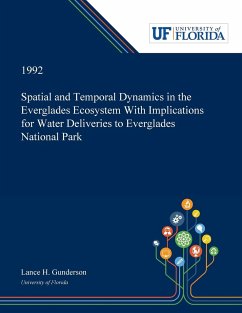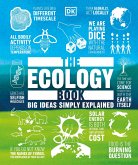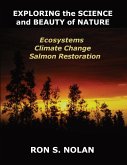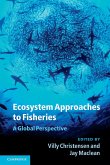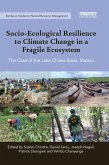Abstract: The Everglades is a unique wetland ecosystem. During this century, the ecosystem has been partitioned for disparate uses of human habitation, agriculture, water conservation and ecosystem conservation in a national park. The sustainability of Everglades National Park is dependent upon upstream water sources. Water management in the Everglades and water deliveries to the Park are linked to human perceptions of ecosystem dynamics. One line of inquiry used expansion of a state-of-the-art computer model to examine the upstream area that once contributed water to the Park. Linkages between vegetation and hydrology were added as vegetation mediation of evapotranspiration and flow and hydrologically induced vegetation changes, but neither addition appreciably improve understanding of hydrodynamics in the Everglades system at the scale of the model. Prior to management, the entire system, south of Lake Okeechobee, contributed flow to Everglades Park except during dry years. Since the onset of intensive water management, an equivalent area of only about one-third of the historic drainage basin has supplied water into the Park. But these conclusions are dependent upon the assumptions made to represent the system at a specific spatial-temporal scale in a model. At other scales the conclusions could well be different. That led to the second major topic of this thesis; that of cross-scale structure and dynamics. A cross-scale mode of inquiry suggests that ecosystems exhibit discontinuities in spatial structures and temporal patterns across time and space due to the interaction of key processes operating over different scale ranges. Spatial patterns in the topography, vegetation and fire data sets exhibited scale regions of self-similarity separated by distinct breaks. Temporal patterns of rainfall, stage, flow, evaporation and sea-level exhibited multiple cycles. These analyses support the theory that ecosystems are structured around a few keystone variables of mixed spatial and temporal dimensions. Dramatic discontinuities appear in patterns as a result of the interactions of processes operating at different space and time domains. This emerging viewpoint of ecosystem structure and dynamics will hopefully provide a basis for new understanding and hence improved management of this unique ecosystem. Dissertation Discovery Company and University of Florida are dedicated to making scholarly works more discoverable and accessible throughout the world. This dissertation, "Spatial and Temporal Dynamics in the Everglades Ecosystem With Implications for Water Deliveries to Everglades National Park" by Lance H. Gunderson, was obtained from University of Florida and is being sold with permission from the author. A digital copy of this work may also be found in the university's institutional repository, IR@UF. The content of this dissertation has not been altered in any way. We have altered the formatting in order to facilitate the ease of printing and reading of the dissertation.
Bitte wählen Sie Ihr Anliegen aus.
Rechnungen
Retourenschein anfordern
Bestellstatus
Storno

